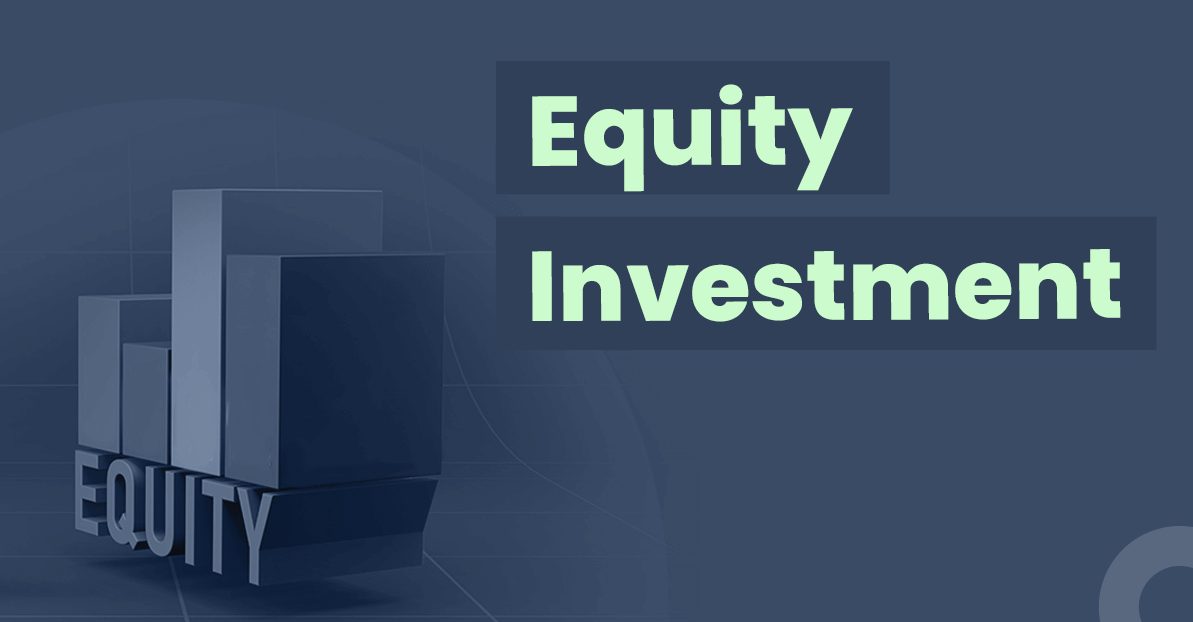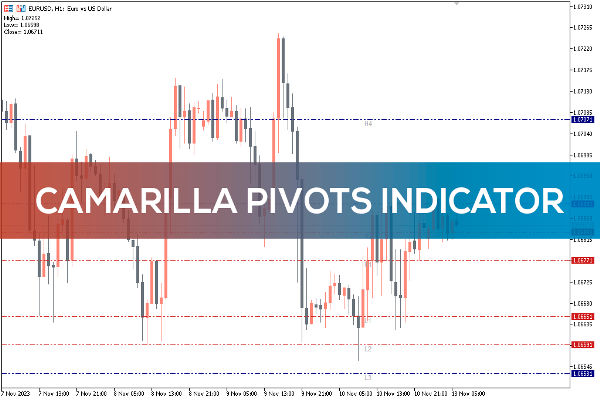I believe that if you've spent any time in financial circles, you've likely heard the saying, "No one gets rich without equity." This adage underscores the importance of equity investments in wealth accumulation. Equity investments are widely recognized as one of the most lucrative and profitable forms of investment today. They offer the potential for substantial returns, often exceeding those of other investment avenues. However, for the average investor, navigating equity investments can be daunting. In this article, we will delve into the intricacies of equity investment, discussing both its potential returns and inherent risks.

What is Equity Investment?
It refers to the participation of an investor in the ownership of a company through the purchase of shares or equity in the company, with the expectation of a return on investment through capital appreciation, dividends, or other means. This form of investment makes the investor a shareholder of the company and thus enjoys corresponding rights and benefits, including participation in company decisions, sharing of company profits, and asset appreciation.
This kind of investment can be made through the purchase of shares in the open market or through private equity, for example, by purchasing equity directly from the company or through channels such as venture capital funds and private equity funds. The return on equity investment is also the return obtained through the purchase of stock or equity in a company, that is, the two parts of capital appreciation and dividend income.
Generally, when the market value of the stocks or equity shares purchased by an investor increases, they can earn capital appreciation gains by selling those stocks or equity shares. This appreciation may be due to factors such as improved company performance, increased market demand, and an improved industry outlook. And some companies pay regular dividends to their shareholders, which are part of the company's profits. The more shares or equity an investor holds, the more dividend income they can receive.
Only it usually happens before the company goes public, and the return is usually high. Many success stories have shown that investing in promising companies can yield great returns. That's why it's considered one of the most lucrative and profitable investment models.
For example, on 15 January 1999, 18 young people with a dream teamed up to create Alibaba, which was successfully listed in the U.S. in 2014 with a market capitalization of more than $200 billion at one point, equivalent to the total market capitalization of the Industrial and Commercial Bank of China.
These 18 founders have now become billionaires, from the start of their investment of only 500.000 yuan to the listing of Alibaba's market value of 200 billion U.S. dollars, realizing more than 200.000 times the growth. Masayoshi Son, chairman of Softbank, has become Japan's new richest man thanks to his investment in Alibaba.
And this is not an example; in addition, Hong Kong Pacific Century CyberWorks chairman Richard Li has also been affected by the investment in Tencent. The investment of 1.1 million U.S. dollars eventually made a profit of 11.5 million U.S. dollars, and in less than a year, the equity value increased by more than 10 times. Then there's China's Baidu, which created 8 billionaires, 50 millionaires, and 200 millionaires when it went public. All of these success stories give an idea of how high the return on equity investment can be, and it is natural to rush to them.
Generally speaking, equity-based investments can be made through different stages. The earliest stage is the seed stage, which is more often backed by individual investors. If the investment is made at an early stage, then the profits gained after success are naturally greater. But again, this round usually carries the highest risk.
So generally speaking, investors can make a good return through stages such as angel investment. An angel investment is an investment that provides financial support to startups at the startup stage, usually funded by individual investors or angel investment funds.
Angel rounds are followed by different funding stages, such as Series A, B, and C, which gradually increase as the company scales up and validates its business model. In the final stage before going public, the company may conduct a PIPO (private pre-investment public offering) to prepare for the IPO.
Of course, the return on investment is closely related to the stage of investment. The earliest angel investments usually yield higher returns, while later investments are less risky but less rewarding. Pre-IPO investments (PIPO) usually yield higher returns, while post-IPO investments become market capitalization management, with shares traded on the secondary market and relatively limited returns.
It is a long-term investment in which the investor expects to receive long-term stable returns, including share price appreciation and dividend income, from holding equity. Therefore, investors usually conduct in-depth research and analysis on the company's business model, management team, and future development to ensure the long-term sustainability and return of their investment.
In a nutshell, equity investment is the investment behavior of finding promising companies and investing in their equity. Successful cases prove its great earning potential, but it also requires investors to conduct adequate due diligence and risk assessment to minimize investment risks and obtain long-term stable returns.
Three ways to invest in equity
|
Ways
|
DESCRIPTION
|
Characteristics
|
|
Individual Investment
|
Individuals directly buy company stock or equity. |
High-risk direct investment funding. |
|
Angel Investment
|
Startup financing comes from individuals or angel funds. |
Early capital for high returns. |
|
Venture Capital
|
Funds support startups' growth with capital for equity. |
Expert management for growing firms. |
How Risky is an Equity Investment?
As a high-risk, high-reward form of investment, it usually involves investors injecting capital into a startup in exchange for shares in the company and profits when the company grows and develops. Investors play a key role in this process, and their financial backing can help the company expand and grow and ultimately reap lucrative returns. However, this type of investment carries a higher degree of uncertainty and risk than other forms of investment, as the success of startups is not always predictable and many projects can end in failure.
Success stories are common, though, and some of these investors have even gone from nothing to billionaires. For example, Google, Facebook, etc., have all generated significant returns for investors. However, equity investing is not all smooth sailing. There are numerous challenges and uncertainties that investors need to face.
First, the survival rate of startups is low. According to World Magazine, less than 18% of start-ups survive for more than five years. That means that of 100.000 start-ups, for example, only 1.000 may survive after five years. That means more than 80% of start-ups will fail within five years, which means investors could face high losses.
Second, such investments usually require long-term capital lock-in, and investors may have to wait years or longer to see returns. In addition, investors need to bear losses from market fluctuations and business risks, which may be a huge test for the average investor.
That said, the success of an investment may depend on the company's strategic planning and execution capabilities, and factors such as management's poor decision-making and incorrect market positioning may have a negative impact on the investment. Some of the investments may involve high-tech fields or emerging industries, and factors such as immature technology, long product development cycles, and low market acceptance may increase the investment risk.
Meanwhile, even after listing, its value may be affected by factors such as market supply and demand, overall economic conditions, and industry trends. Market volatility and uncertainty may lead to fluctuations in investment value.
Not only that, investee companies may also face business risks such as market competition, technological changes, mismanagement, and product quality issues, which may affect the profitability and long-term development of the company. Financial problems such as the poor financial condition of the company, excessive debt burden, and insufficient cash flow may have a negative impact on the investment, including situations such as a decline in the share price and a reduction or cessation of dividends.
Moreover, such investments will be subject to relevant laws and regulations and may involve compliance risks and legal proceedings. Investors should first consider the exit mechanism when making an investment, but the exit process may be affected by various factors such as market conditions, company status, laws and regulations, etc., and there may be the risk of difficulty in exiting or failure to obtain the expected return.
Overall, equity investment carries relatively high risks but is also accompanied by high potential returns. Investors should carefully assess the risks and take appropriate risk management measures according to their own risk tolerance, investment objectives, and time preferences. For example, risks can be mitigated by diversifying investment portfolios, conducting adequate research and due diligence, and choosing prudent investment strategies.
How many years is a typical exit from an equity investment?
|
Exit period
|
Short-term (1-3 years)
|
Medium-term (3–7 years)
|
Long-term (7+ years)
|
|
1 year
|
Start-up stage, few exits |
Considering exit, goals not met |
Exit plans and growth. |
|
2 years
|
Initial results and fast growth |
Growing is a better time to exit. |
More exit options are available. |
|
3 years
|
Steady growth attracts investors. |
Industry leader with an assured exit. |
Consider an IPO or sale. |
|
4 years
|
Sustainable growth is impactful. |
Considering an IPO or major deal. |
The exit strategy follows the market. |
|
5 years
|
Market leader, high valuation |
Exit via IPO or big deal. |
Full or partial exit with returns |
How to Invest in Equity?
Although the same investor buys shares of a company, thus becoming a shareholder of the company and sharing the company's future profits and appreciation, However, unlike ordinary stock investment, in equity investment, the investor directly buys the company's shares or equity and becomes a shareholder of the company, participating in the company's ownership and management decisions, whereas in ordinary stock investment, the investor buys the shares of an already listed company through the stock market and becomes a shareholder of the company, but usually does not directly participate in the company's management and decision-making.
In terms of risk and return, equity investments usually have higher risk and return due to direct participation in the ownership of the company. Investors may receive higher capital appreciation and dividend income, but they also face a greater risk of failure. Ordinary equity investments, on the other hand, have relatively low risks and rewards, and investors are usually rewarded through share price appreciation and dividend income.
So although this type of investment carries a huge risk, with the likelihood of failure far greater than the likelihood of success, investors will still be tantalized by its huge returns. And for the average investor who wants to invest in equity, it's vital to have the right investment mindset.
Firstly, ask yourself if you can afford to lose the money, and don't invest in your children's living expenses or trading fees. Secondly, consider whether the money is worth losing and whether the investment is worth trying. Finally, the starting point for investing should be a positive view of the industry or project in question and a desire to realize your ambitions through investing.
Having considered all of this, there are some important strategies and practices that can help minimize risk and increase the chances of success if one wants to be successful in this investment arena. First of all, investors should choose industries and companies to invest in that they know and understand.
There is also the fact that it is crucial to thoroughly research and analyze the market before choosing an investment target. Understand factors such as trends in different industries, company performance, competitors, and the impact of the economic environment on the market. Having a clear understanding of a company's business model and growth prospects will help minimize investment risks.
Identify the industry, company, or asset type in which you want to invest. Consider the investment objectives and risk appetite, as well as the desired return on investment. Conduct a fundamental analysis of the potential investment target, including an assessment of the financial position, profitability, management team, and market position. This can help assess a company's value and potential risks.
Second, investors should diversify their investments to avoid putting all their eggs in one basket. By investing in multiple projects or companies, the risks associated with a single investment can be reduced and the overall return on investment increased. Of course, this also depends on one's capital.
In addition, investors should focus on due diligence and risk management. Before making any investment decision, it is crucial to carefully research and evaluate a company's financials, management team, and market outlook. Understanding the company's strengths and weaknesses, as well as the challenges it may face, can help investors better assess the risks and rewards of their investment.
Investors should also develop an appropriate exit strategy so that they can exit their investment in a timely manner when needed and maximize the protection of their capital. Because equity investments are usually long-term investments, investors need to wait patiently for the company to grow and become profitable and then exit the investment by selling their stake or listing the company.
So this requires investors to have a good mindset and long-term vision and be able to accept the challenges and ups and downs of the investment process. And to learn from failures and continuously adjust and improve investment strategies. In addition, it is also able to maintain patience and confidence, adhere to long-term investment objectives, and not be affected by short-term market fluctuations and emotions.
In summary, equity investing is a high-risk, high-return investment that may not be easy for the average investor. However, with the right strategy and hands-on approach, investors still have the opportunity to succeed in this field and achieve financial growth and fulfillment.
How the average person can make an equity investment
|
Participation
|
DESCRIPTION
|
|
Angel Investment Platform
|
Direct investment in startups through specialized platforms. |
|
Equity Crowdfunding
|
Small investments in startup equity using crowdfunding platforms. |
|
Private Equity
|
Indirect investment in equity through institutions. |
|
Local investment opportunities
|
Direct investment in local startups, negotiated investment. |
Disclaimer: This material is for general information purposes only and is not intended as (and should not be considered to be) financial, investment, or other advice on which reliance should be placed. No opinion given in the material constitutes a recommendation by EBC or the author that any particular investment, security, transaction, or investment strategy is suitable for any specific person.







